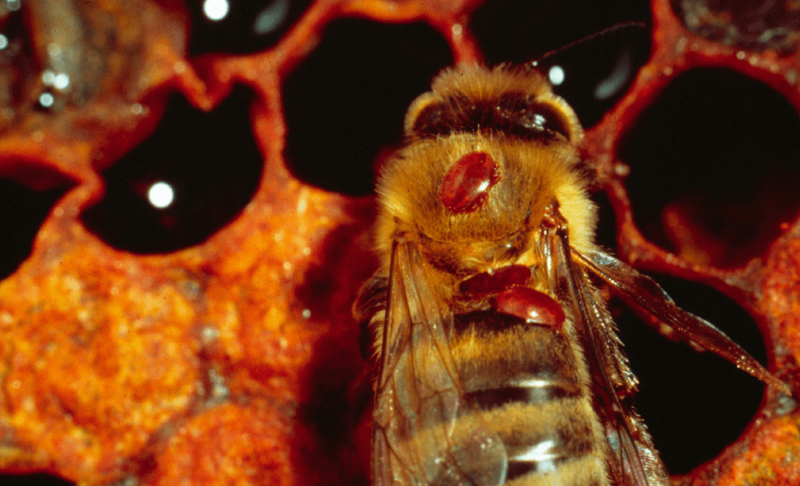The ectoparasitic mite Varroa destructor is responsible for the death of millions of honey bee (Apis mellifera) colonies worldwide. Testing potential miticide compounds with different delivery methods that effectively control V. destructor and have low toxicity for honey bees is crucial to manage this parasite in hives.
…
However, the frequent use of synthetic miticides to control V. destructor infestations has resulted in mites developing resistance to many of the chemical components of these products (Milani 1999; Sammataro et al. 2005).
…
Therefore, the identification of new compounds with high miticidal activity and low toxicity to honey bees that at the same time do not leave harmful chemical residues in hive products is an important task for researchers (Rosenkranz et al. 2010).
…
[The results of this study] show that oregano oil is effective for the control of V. destructor infestations in honey bee colonies. Future studies are warranted to confirm these results and to test different doses of oregano and other essential oils, as well as different devices designed to provide continuous release of miticides at a constant dose regardless of climatic conditions.
The GLP aggregated and excerpted this article to reflect the diversity of news, opinion and analysis. Read full, original post: Continuous release of oregano oil effectively and safely controls Varroa destructor infestations in honey bee colonies in a northern climate































